A growing body of research is uncovering the significant impact that indoor air quality (IAQ) has on our health. With homeowners spending most of their lives indoors, the air quality within our homes is more important than ever. A well-functioning HVAC system and other factors such as proper ventilation and frequent maintenance play a critical role in ensuring a healthy living environment. We recognize the importance of indoor air quality. We are dedicated to providing our clients in Milwaukee, Washington, and Waukesha counties with the knowledge and tools necessary to create cleaner, healthier homes.
Today, we will explore IAQ’s essential aspects, including the factors that affect it, the potential health consequences of poor IAQ, and practical steps you can take to improve the air quality in your home. We aim to educate and inform homeowners about the importance of proper air quality and ways to ensure your family’s well-being in the long run.
Understanding the Components of Indoor Air Quality
IAQ is influenced by various factors that determine the air quality within your home. Some of the major components affecting IAQ include:
- Airborne Particulate Matter: This encompasses solid particles and liquid droplets suspended in the air, such as dust, pollen, and pet dander.
- Biological Contaminants: Microbial pollutants such as mold, mildew, and bacteria can negatively impact IAQ.
- Chemical Pollutants: Harmful chemicals present in cleaning products, building materials, and tobacco smoke can contribute to poor air quality.
- Ventilation: Proper airflow and exchange with outdoor air help dilute indoor air pollutants and maintain a healthy environment.
- Humidity Level: Excess moisture in the air can lead to mold growth and increased allergens, while overly dry conditions can irritate the skin and respiratory system.
Understanding these factors is the first step towards managing and improving air quality in your home.
The Health Effects of Poor Indoor Air Quality
Poor IAQ can have both immediate and long-term effects on the health of those living in your home. Some possible health issues are:
- Irritation of the eyes, nose, and throat
- Respiratory illnesses, including asthma and bronchitis
- Allergic reactions, such as sneezing, congestion, and rashes
- Headaches, dizziness, and fatigue
- Serious long-term complications, including heart disease and lung cancer
By identifying and addressing the sources of indoor air pollution, you can protect your family’s health and improve your overall well-being.
Identifying Common Indoor Air Pollutants and Their Sources
To enhance IAQ, it’s essential to pinpoint common indoor air pollutants and their primary sources. Some of the most common pollutants include:
- Volatile Organic Compounds (VOCs): These are emitted by numerous household products, such as paints, cleaning supplies, and even some types of upholstery and carpets.
- Combustion Pollutants: These can be produced by gas stoves, fireplaces, and the burning of tobacco products.
- Radon: This radioactive gas can enter your home through cracks in the foundation, walls, and floors.
- Mold and Mildew: Excess moisture, inadequate ventilation, and building materials can promote mold and mildew growth.
- Pet Dander and Dust Mites: These allergens can accumulate in your home, impacting residents with allergies or respiratory issues.
You can target and minimize their presence by identifying key pollutants in your home to enhance IAQ.
The Role of Your HVAC System in Managing IAQ
An optimally functioning HVAC system can significantly contribute to improving IAQ. Here’s how:
- Proper Ventilation: An effective HVAC system ensures appropriate air exchange between indoor and outdoor spaces, diluting indoor air pollutants.
- Filtration: High-quality air filters can capture and remove airborne particles, reducing the concentration of allergens and contaminants.
- Humidity Regulation: HVAC systems can help maintain optimal humidity levels, preventing mold growth and excessive dryness.
- Maintenance: Routine maintenance of your HVAC system, such as cleaning air ducts and replacing filters, is essential for maintaining healthy air quality.
Upgrading your HVAC system and ensuring it receives proper maintenance is one of the most effective ways to manage IAQ.
How to Improve Air Quality in Your Home: Tips and Best Practices
Consider the following tips and best practices to enhance the IAQ in your home:
- Regularly clean and vacuum your home to reduce dust and allergens.
- Maintain optimal humidity levels with the use of a humidifier or dehumidifier.
- Ensure proper ventilation by opening windows and using exhaust fans when necessary.
- Utilize air purifiers with HEPA filters to capture and remove airborne particles.
- Keep your HVAC system well-maintained with regular professional servicing.
Implementing these measures can significantly impact your home’s air quality, leading to a healthier, more comfortable living environment.
Conclusion
Indoor air quality is essential to maintaining a healthy living environment for you and your family. By understanding the factors influencing IAQ and taking proactive steps to improve it, you can create a cleaner, more comfortable home for everyone. Remember that Burkhardt Heating & Cooling is here to provide expert guidance and quality HVAC services in Milwaukee to help you achieve a healthier home. With our support, we can enhance the air quality in your home and ensure your family’s well-being for years to come. Contact us today to get started.











